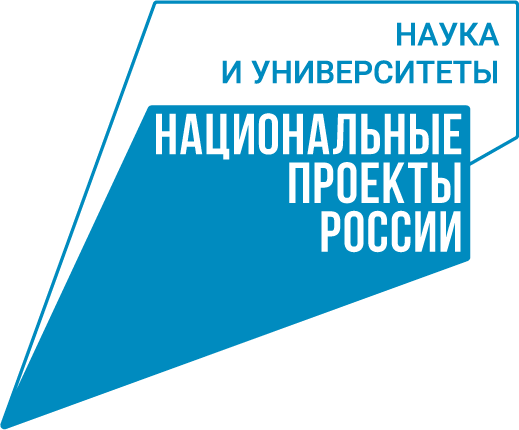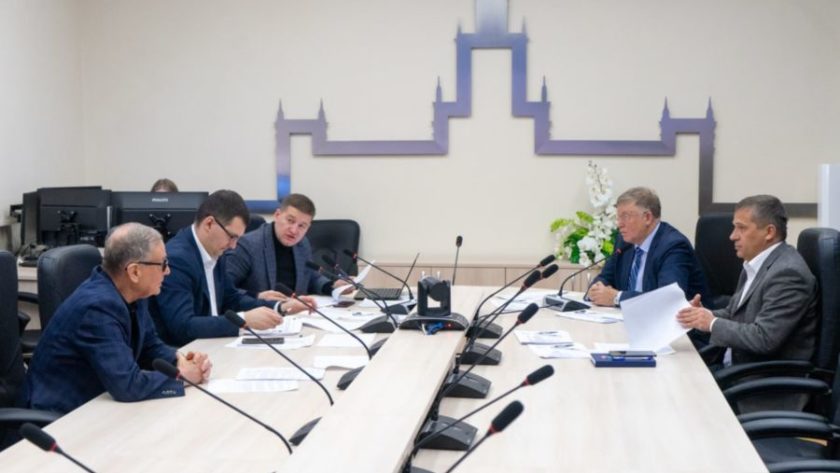The projects that had been selected for subsidies for the implementation of scientific and technical projects included in the list of the Urals Interregional Scientific and Educational Center (UIREC) were presented at the South Urals State University. The meeting was attended by Pavel Ryzhy, Minister of industry, new technologies and natural resources of the Chelyabinsk Oblast, and Vitaly Litke, Deputy Minister of education and science.
By order of Alexei Teksler, head of the region, 169 million rubles were allocated for subsidies from the regional budget. In December 2022, South Ural State University received 148 million rubles from the regional Ministry of Education on a competitive basis for the implementation of seven scientific and technical projects under the grants from the Chelyabinsk Oblast and the UIREC projects. The remaining 21 million rubles were received by Nosov Moscow State Technical University.
“I would like to thank the government of the Chelyabinsk Oblast and the Governor Mr. Alexei Leonidovich Teksler for organizing the contest of projects that are implemented with the involvement of the university staff and resources in order to solve tactical and technical problems of the region’s industrial sector. We have reviewed in detail eight projects that received funding in order to assess their main goals and objectives and to get a full understanding of what is expected from each of them,” said Alexander Wagner, Acting Rector of SUSU.
The winning projects are aimed at solving problems of import substitution in automobile and machine building, creation of environmentally friendly production facilities, processing of copper smelter slags, development of modern digital technologies of high-tech product management, and control automation in the electric power industry.
“The regional Ministries of Industry and Education started to discuss joint financing of projects aimed at ensuring the country’s technological sovereignty quite a long time ago. And today we see the actual results of this work: eight projects developed by South Urals’ industrial companies, implemented by teams of experts from the region’s leading universities, headed by SUSU. The Chelyabinsk Ministry of Industry and Industry Development Fund cooperate closely with many of these companies, compensating them for the expenses already incurred for the research and development. Grants from the Ministry of Education, on the other hand, imply advance financing of R&D. This way, the Chelyabinsk Oblast is comprehensively supporting essential import-substituting industrial projects, which also includes the huge scientific potential of both universities”, said Pavel Ryzhiy.
Vitaly Litke, in his turn, noted that the financial support of the projects will make it possible to develop products that are in demand on the market. And the processes launched at the universities will form research groups and project teams of young scientists and professionals, which will increase the quality of education. Equally important are the new production cooperative chains that will form themselves in the course of the considered projects.
Together with the Ural Automobile Plant in Miass, SUSU is working on a project to develop state-of-the-art transfer boxes for all-wheel drive vehicles. Its result by 2025 will be the launch of a new range of domestically produced transfer boxes for the promising “Ural” vehicle family. This will ensure the plant’s complete independence from deliveries of these components from China and Germany.
With the goal of improving mass-size parameters of electromechanical converters in systems of frequency-controlled electric drives, a grant was given to Snezhinsk Plant of Special Electrical Machines (SZSEM). Its engineers are developing a series of import-substituted electric machines for overhead drive system based on synchronous reactive and asynchronous electric motors.
A domestic software system for control, adjustment and diagnostics is now under development as part of the Ural Engineering Center’s project named “Development and Production of Tracking Hydraulic Drives with Hydrostatic Guides”. By 2025, the production of the servo drive is to be fully import substituted. It will allow not only to eliminate the need for foreign components, but will also facilitate the maintenance of such equipment that is foreign-made.
An environmentally friendly approach to copper smelter slag disposal is suggested in the project of SUSU and “IC AS Teplostroy” on integrated recycling of technogenic waste. It is proposed to extract iron from this waste and use it for making wear resistant cast iron grinding balls and construction reinforcement.
OOO “TEK-Spetsmash” is planning to create in the Chelyabinsk Oblast a high-tech plant for manufacturing competitive import-substituting industrial products, namely key devices of the rock rolling system for shield tunneling.
The Chelyabinsk Electrical Equipment Plant (CEEP) is working with SUSU to develop an import substitution project in the energy sector. The system in question will monitor failures in electricity distribution. Currently, the scientists are looking for innovative digital solutions for diagnostics and data transmission in small-sized switchgears.
SUSU is working on a new technology for producing safe wide spectrum polyurethanes together with “Modern Insulation Technologies” plant. The aim of the project is to restore technological sovereignty of the Russian Federation in one of the key areas of industrial manufacturing and its development based on the latest scientific advances.
Magnitogorsk Nosov State Technical University (MSTU) also presented its project on the development of a new chemical composition of an alloy used for production of two-layer mill rolls for hot rolling mills with a barrel diameter over 1 m. The project is implemented jointly with the Magnitogorsk Mill Rolls Plant. The new alloy composition will be an improved analogue of foreign solutions.
The meeting resulted in the decision to fully support each project by the Ministries of Industry and Education through the mechanisms available in their arsenal. Alexander Shestakov, President of SUSU, noted that all the teams should pay special attention to research activities within the projects being implemented. The scientific research should form the basis for future doctoral and candidate’s theses, which will help raise research teams that will become the best in our country.

